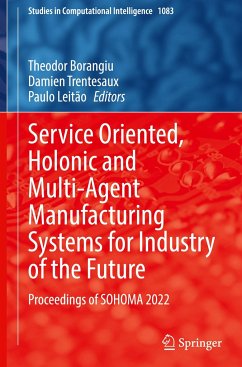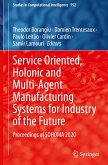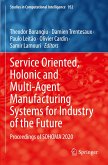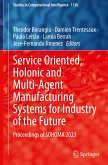The scientific theme of the book is "Virtualisation - a multifaceted key enabler of Industry 4.0 from holonic to cloud manufacturing" which is addressed in the framework of cyber-physical system development. The book approaches cyber-physical systems for manufacturing with emergent digital technologies: Internet of Things, digital twins (based on the virtualization of production models embedded in the design, virtual commissioning, optimization and resilience of processes and fault tolerance of resources), big data, cloud control and computing, machine learning and cobots, that are applied in the book's chapters to industry and service sectors such as manufacturing, energy, logistics, construction and health care. The novelty of this approach consists in interpreting and applying the characteristics of RAMI4.0-the reference architecture model of the Industry 4.0 framework-as combinations of virtualized cyber-physical system elements and IT components in life cycle value stream models. The general scope of the book is to foster innovation in smart and sustainable manufacturing and logistics systems and in this context to promote concepts, methods and solutions for the digital transformation of manufacturing through service orientation in holonic and agent-based control with distributed intelligence. The book's readership is comprised by researchers and engineers working in the manufacturing value chain area who develop and use digital control solutions in the "Industry of the Future" vision. The book also addresses to master's and Ph.D. students enrolled in Engineering Sciences programs.
Bitte wählen Sie Ihr Anliegen aus.
Rechnungen
Retourenschein anfordern
Bestellstatus
Storno








